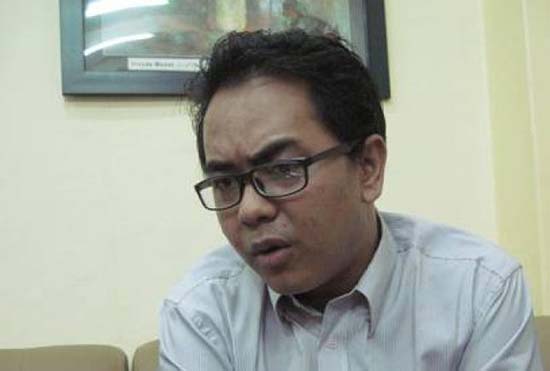"WE are freer now, but we are not safe."
This is the observation of Nay Phone Latt, the executive director of Myanmar ICT for Development Organisation (MIDO).
The SEAPA Fellowship program was concluded on 31st August, 2013. And, the final stories are already published in their news organization starting from last week.
As SEAPA fellowship aims to distribute the stories as far and wide as possible across the region especially on Burma and Singapore. Their stories will be carried by different media outlets in Burma and other countries, too. (as SEAPA owns the copyright of the stories.) As of Burma, Irrawaddy and Myanmar Freedom Daily News has carried a few of our stories.
"WE are freer now, but we are not safe."
This is the observation of Nay Phone Latt, the executive director of Myanmar ICT for Development Organisation (MIDO).

Nay opined that the Telecommunication Bill that provides for an establishment of a regulatory body for the ICT industry is a reflection of the old mindset of the "new" government who sought to extend control and harsh punishment for end users.
The bill is copied directly from the 2004 Electronic Transaction Act (ETA) that prescribed severe punishment of the users who posted content that may affect national security or the people's interest. And the related terms are vague and open for interpretation, he said.
Nay was arrested by the former regime for disseminating information about the 2007 military crackdown on the "Saffron Revolution" to the outside world. He was sentenced to 15 years of jail term under the ETA but was released in 2012 after receiving a presidential pardon.
MIDO submitted its input to the government on the draft bill, hoping to push for an independent regulatory body, as well as the removal of the 7-15 years' jail term punishment.
The bill has been passed by the Lower and Upper Houses recently and will become law after the president signs it. Nay has not seen the final draft yet.
In a brief email reply to the writer, Deputy Minister of Information Ye Htut of the ruling Union Solidarity and Development Party (USDP) said: "The Government notices that when we lift restriction on the internet, the emergence of racial and religious hate speeches is becoming a social problem and are a factor in recent communal violence.
"Now we are working with civil society organisations for social awareness campaign for internet users about hate speech."
However, Ye Htut did not elaborate if the government will exercise its control on the social media.
Asked about Rohingya Muslim activist Than Shwe who was arrested in mid-August for posting a photo of security forces clash with Muslims in Rakhine, he said under the penal code, it is a crime to spread religious hate speech or actions. Hence action was taken againt Than.
"We prefer an awareness campaign, and not another law to control social media," Ye Htut added, noting that the Ministry of Information and the United States Embassy in Myanmar jointly conducted a workshop on hate speech on social media in July.
Although the level of maturity of the general internet users leaves much to be desired, Nay is of the view that the government should not control online expression, as the people can regulate themselves.
"We can regulate each other. we can create an online culture among ourselves.
"I have 5,000 friends on Facebook. If they make any hate speech, I will give them a warning; if they do it again the next time, I will 'unfriend' them. Now I can safely say that my friends are not among those making hate speeches," Nay said.
On the other hand, Nay also believed that Myanmar's law enforcement and justice systems are not yet equipped to handle cases related to cyber crime.
"If you are a victim of a cyber crime and you tell the police, they don't understand what you are saying," Nay said.
Due to the relatively small online community in Myanmar, some would say the impact of online hate speeches remains minimal.
However, the lack of institutions or organisations to respond to the growing challenges could seriously affect the country's online space in view of the boom of the telecommunication industry.
Norway's Telenor will launch its voice and data services in the second quarter of 2014, covering 78% of the population while Qatar's Ooredoo will build 10,000 public access points nationwide putting 84% percent of its population online by 2019.
To some, the internet is a gateway to the world; to others, it is a political weapon. With the low internet literacy of the people, the online space could be dictated by a small group of people, serving their own interest.
The opening up of the cyber space should not be done on a piecemeal basis, critics say. It has to be something open and transparent that would empower the people constructively. All parties are equally responsible in deciding whether the online space is a platform for engagement or a battleground for ruling elites to gain political mileage.
Chen Shaua Fui is one of the six journalism fellows of the 2013 SEAPA fellowship programme. This article is produced for the programme, which carries a theme Freedom of Expression – Challenges to Internet Government in Southeast Asia. It was originally published on http://www.fz.com in September 2013.



